Why I was not surprised about swastikas: The reality of being a Jewish student in Pelham
Last month, before my 13-year-old cousin began public school for the first time as an eighth grader, my two brothers and I sat down with her to have an important conversation about the realities she would face in the years to come. After nearly forty years of Pelham elementary, middle and high school experience between us, we felt that we had gained some wisdom as a family that might serve to guide our confident, optimistic younger cousin as she made the tricky transition from a Jewish day school into a New Jersey district not unlike Pelham’s.
People are going to call you names, we warned her. Even your friends, sometimes, are going to say really bad things.
She wasn’t catching our drift.
Other kids might make fun of you because you are different. Still, she didn’t quite grasp what we were saying.
Finally, I put it bluntly: “You are going to get bullied because you are Jewish.”
For several minutes, she did not believe that what we were saying could be true—then, once our older cousins from other Westchester school districts corroborated what we were saying, she was appalled, almost unable to wrap her head around the reality that we had just presented to her. The reality in many public schools.
It is an unfortunate truth that many people who identify with the Jewish community learn to accept, often through a painful set of experiences. I think I speak for many of us when I say that Pelham is by no means an exception.
It begins in elementary school, when students and teachers alike feel compelled to single out Jewish students as being different from the rest of the class. A first-grade teacher asked her students openly to raise their hands if they celebrate Hanukkah, rather than Christmas, for no apparent reason. A close friend who, in Kindergarten and had yet to develop a filter, let it slip that you can’t be in the local Cub Scouts because “you are a Jew.”
In middle school, it became clear that, to many of our classmates, our Jewishness was a principal defining characteristic of who we are. By high school, this manifested in the form of outright harassment—no sugar-coating, no beating around the bush—coming from friends as much as (if not more than) strangers. When college applications rolled around and one school asked for three words that my friends might use to describe me, my dark suspicions were entirely confirmed when, upon asking several close friends to give their input, every single response included my religion. The word “Jew” is thrown around almost as though it has four letters instead of three. Even the Monday morning after eleven people were gunned down in that bone-chilling attack on a Pittsburgh synagogue, it seemed to so many of us that, in Pelham Memorial High School, there was no catching a break.
When I heard the unfortunate news that three swastikas were found in a Pelham Middle School boys’ bathroom and the locker room, I was far from surprised. By this point, I was hardly angered or saddened. I had become accustomed to these kinds of experiences years earlier, when I first came to terms with the fact that, no matter how much we stress the importance of tolerance, these hurtful sentiments will continue to reveal themselves in our community. And, it will often slide under the radar of those who are not affected, until something explicit like this happens again (because it happened five years ago on the sidewalk in front of Siwanoy School, and it will happen again).
Why has this problem gone unaddressed for so long? Why must it take such a jarring, abhorrent event to bring the issue to the front of our minds as a community?
The answer is clear to me and to many other Jewish students who have passed through the Pelham schools. In reality, it can be extremely difficult to bring light to the topic if you are currently a student. It is a dark facet of our community and communities around the world like ours, and it is far easier to ignore these realities than to stand up against them.
When ridicule involving my Judaism was directed at me, it was almost exclusively from those whom I called good friends. Sometimes it came in so-called harmless forms. A sketch jokingly drawn of me on a small classroom whiteboard would be rounded off with a Star of David by my side. But it wasn’t uncommon to hear far more troubling remarks. The word Jew would be used as a verb to replace the words steal, cheat, or really any negative term. By my senior year, statements like, “I can’t believe my teacher ‘Jewed’ me of those points” became commonplace. These were just the comments made in my presence.
I began to see defending myself and my Jewish classmates as “picking fights” with people I cared about—something I rarely felt was necessary. Though my grandfather used to tell me stories about how, back in his day, the only way to really deal with an anti-Jewish bully was with a right-hand hook, I always tried to explain to him that these kids weren’t anti-Semitic—they were just making friendly banter that sometimes went too far. Yet, I didn’t know then that each time I did not stand up against this “banter,” it would become worse, until I realized that it had gotten to a point where it was so prevalent in my everyday life that I could never stand up against it on my own.
Unless you are on the receiving end of this kind of harassment, it’s hard to recognize exactly how deeply this problem is rooted in our community. The events of last week do not hold a candle to the number of swastikas I have seen drawn directed at myself or some of my peers in the backs of classrooms, libraries and locker rooms, drawn in notebooks, on whiteboards and chalkboards, carved into tables and doorframes and spewed along with hateful words. These pencil drawings were always erased, whiteboards always smeared, etchings always carved over, words always reduced to echoes, and targeted students always pushed into silence. Perhaps it was the permanent nature of last week’s vandalism that brought it into the eye of the public.
I am thankful for the community’s outward reaction to these disheartening events and to see that the district is responding to this ignorant act with education. Those of us who have experienced these problems firsthand have seen that they are not born at the hands of one misguided student or family, or even a dozen, but rather at the hands of a faulty social dynamic that pins down the victims of all forms of bullying and harassment into silence. Jewish students are not alone in the discrimination we suffered at the hands of some of our classmates. The number of times I was told that Hutchinson School was becoming “too colorful,” or I was asked about the “gangs” in our neighborhood, shows yet another prevalent issue that the people of Pelham must face. As a community, all of us continue to fail to bring attention to the intolerance and discrimination that we see, no matter how unintentional it appears to be, until there is an unfortunate but inevitable incident that makes headlines.
I would hope that this incident, which has made our community shudder, will spark further conversations about anti-Jewish rhetoric, in addition to the history of the Holocaust and discrimination of Jewish people around the world, teaching our students about the need to end intolerant, offensive language. I implore the administration of the school district to train faculty and staff, as well as students, to more closely monitor the comments that are tossed around in the classrooms and in the hallways on a daily basis, and to call them out. At the end of the day, the only difference between a swastika on a locker and a half-muttered hurtful phrase is that one can be photographed.
I would hope that my younger cousins, and all of the students beginning their young-adult lives as middle- and high-schoolers, do not encounter the same negative experiences that have come to define those of us who have gone through it already. I would hope that all of the current students of Pelham’s schools will work together to make this a new reality for today and for our future.
I would hope.
Michael Salama, a co-founder of the Pelham Examiner, is a Pelham Memorial High School graduate of the Class of 2019, and a current member of the Princeton...



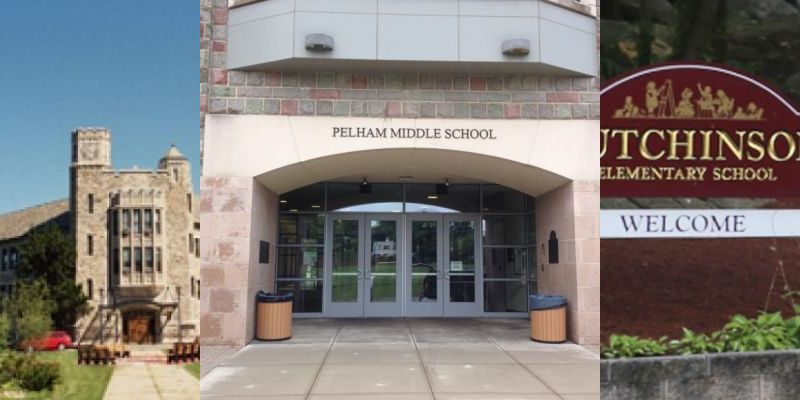
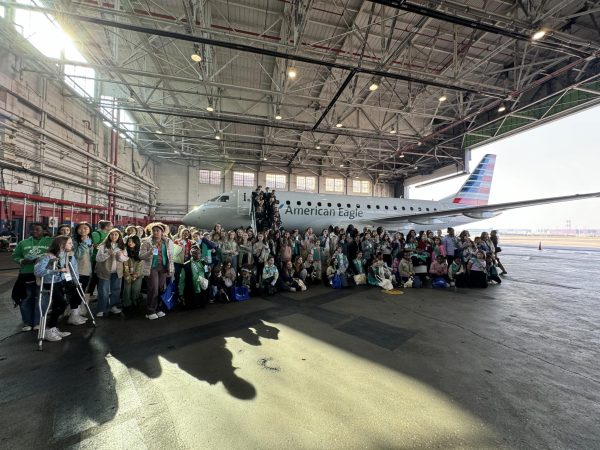
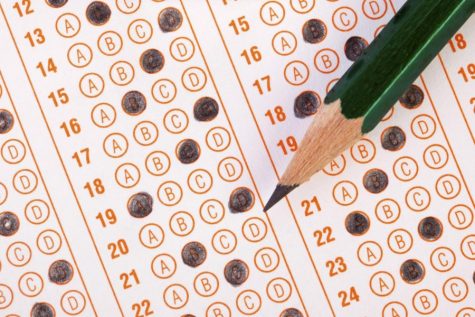
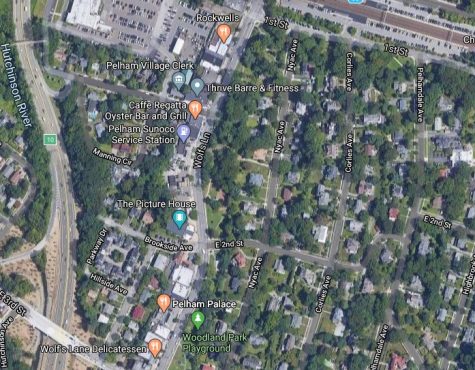

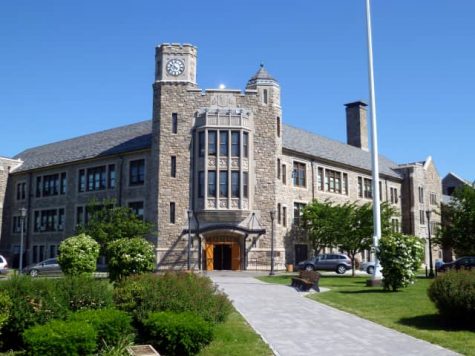
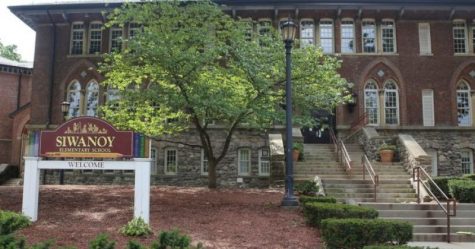
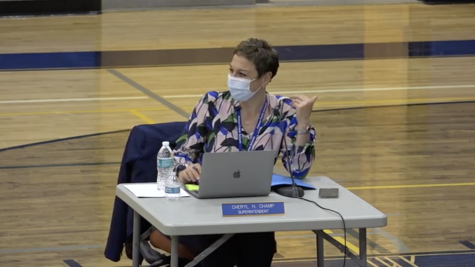
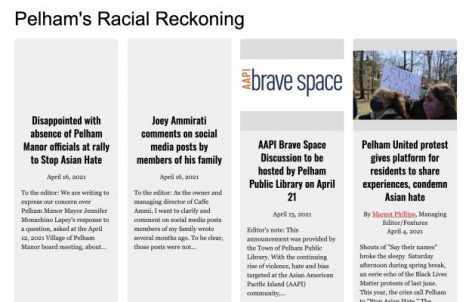
Jeff Matteuzzi • Jan 8, 2020 at 6:39 pm
Well written, Michael. It’s important that the minority voice be heard. Especially regarding treatment in their own communities; warts and all.
Evan Kaplan • Oct 17, 2019 at 7:18 pm
I am shocked at the insensitivity of our pelham schools.
Didi • Oct 16, 2019 at 1:29 pm
That’s why we can allow schools to alter the curriculum. If we don’t learn from history we will continue to make the same mistakes.
Pelham curriculum administrators take note!
Ana Turkienicz • Oct 16, 2019 at 12:02 pm
WOW Michael,
Thank you so much for your honesty and bluntness.
Absolutely on point.
As the Education Director at the Pelham Jewish Center, I unfortunately heard too many personal accounts of anti-semitism in Pelham schools, including the Elementary school.
But your article gives a new perspective of a daily experience that is unacceptable in the US in 2019.
Thank you so much for bringing the extent of this painful reality into the open.
Cheryl Jordan • Oct 16, 2019 at 11:27 am
Thank you for speaking out Michael. We hope, too, that each generation brings with it a more enlightened perspective. We also know that the ONLY way to achieve that is to actively talk to our kids about tolerance early and often so that they are armed with tools to handle this stuff when it inevitably crosses their path-sooner than you expect. Fill your bookshelves with books that model the importance of this behavior. Be louder and clearer in their heads than the messages they will encounter that are outside our control. Please. For everyone’s sake.
Amy Rios • Oct 16, 2019 at 5:11 am
Micheal- this was beautifully written. It is absolutely heart wrenching to hear that this is your experience. Nobody should have to deal with such negative experiences. We owe it to you and your classmates to do better. Thank you for taking the time to opening my eyes to this.
Mindy Squeo • Oct 15, 2019 at 10:30 pm
Thank you for your thoughtful article, Michael. I remember my early years in a mostly Christian public school on Long Island that I was always made to feel different. My daughter went to Tuckahoe Schools for a few years and it’s even worse there…they would throw pennies at her and other Jewish students. I find it terrifying that we are still fighting this fight in the 21st century, and that the rising tide feels more and more like a tsunami. I hope more can be done to bridge the gap and foster understanding and tolerance in the days ahead, but you can’t force people to open their minds and hearts if they don’t want go. Still, as we move forward in this new year, I will continue to pray for peace, here and everywhere.
Jennie Driesen • Oct 15, 2019 at 7:21 pm
Thank you, Michael. It’s so sad that this continues to be a problem in Pelham.
Rosemary Maggiore • Oct 15, 2019 at 2:33 pm
Bravo Michael for a beautiful, heartbreaking and honest letter. Your worlds help shed light to something many can’t possibly understand without experiencing it firsthand.
Daniel Bernstein • Oct 15, 2019 at 12:48 pm
Thank you for writing this, Michael. Incredibly well put.
Toby Marxuach-Gusciora • Oct 15, 2019 at 12:22 pm
Excellent article and well written. I personally do not believe anyone should have to deal with any negative words or acts because of their religion, color, social status, etc. We need to make people aware how hurtful their words and jokes can be to others.